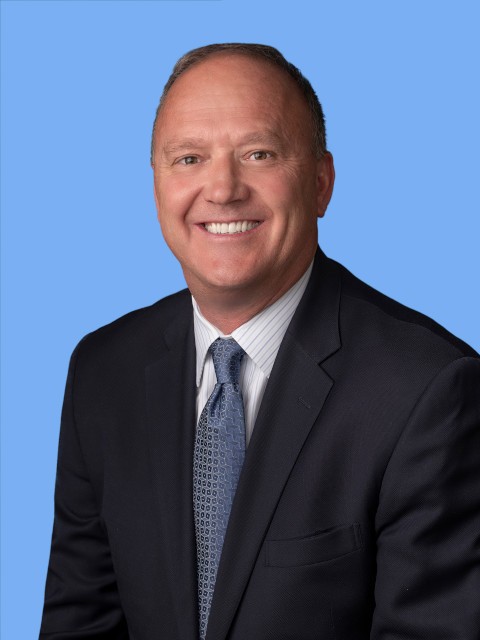Stay ahead of the latest regulatory shifts and healthcare breaking news with Headlines from the Hill.
In this month’s edition you will find:
-
-
- MedPAC payment alternatives: What this means for inpatient rehab and skilled nursing.
- Rural health priorities: National Rural Health Association outlines actions for Congress.
- Medicaid expansion: 10 states that have not expanded.
- Prior authorization and denials: Congress launching investigation.
- CMS certification issues: Organizations call on CMS to address delays and process issues.
-
MedPAC payment alternatives: What this means for inpatient rehab and skilled nursing.
On October 5, the Medicare Payment Advisory Commission (MedPAC) held a session focused on potential alternative payment methods for “select conditions” treated in inpatient rehabilitation facilities (IRFs) and skilled nursing facilities (SNFs).
During the session, MedPAC staff shared their plan to “explore alternative ways to narrow the difference in payment rates between IRFs and SNFs for those patients who do not require the intensity of IRF services.” The session primarily focused on conditions that do not count toward the 60% threshold and provided different analyses of SNF patients compared to IRF patients that do not count toward the IRF’s 60% rule threshold.
Based on their findings, two payment alternatives were presented for the Commissioners’ consideration, including:
-
-
- Paying IRFs the SNF prospective payment system (PPS) rate for “nonqualifying” beneficiary stays
- Lowering the IRF PPS payment rate by a set percentage
-
There was mixed reaction among the Commissioners to these proposals; while some offered strong support, others noted the key differences across the IRF and SNF benefit and raised concerns about the potential impact on patient care and access.
Rural health priorities: National Rural Health Association outlines actions for Congress.
The National Rural Health Association (NRHA) sent a letter outlining actions Congress can take to shore up the rural healthcare system, after the chairman of the House Ways and Means Committee put out a call last month for ideas. NRHA called on Congress to:
-
-
- Exempt rural hospitals from price transparency rules, calling them "costly and burdensome".
- Increase payment rates and force Medicare Advantage plans, who account for a growing share of their patients, to speed up payments that providers say are taking too long to arrive.
- Authorize Medicare to extend a policy that boosts reimbursement to hospitals that pay lower wages to their employees, which aims to lessen pay disparities between rural hospitals and higher-wage facilities.
- Maintain rural hospitals' access to the 340B federal discount drug-purchasing program as Congress weighs changes to it.
- Permanently extend telehealth flexibilities put in place during the pandemic.
- Help rural providers move away from fee-for-service payment and into value-based payment programs.
-
Medicaid expansion: 10 states that have not expanded.
A recent study by the Kaiser Family Foundation (KFF) examined the possible impact on 10 states that decided to not expand Medicaid. The 2010 Affordable Care Act offered states an opportunity to expand eligibility for Medicaid, a healthcare program paid for jointly by the federal and state governments that covers care for low-income children, adults, people who are pregnant or have a disability, and older adults.
The expansion extended Medicaid coverage to all low-income adults earning up to 138% of the federal poverty level—for individuals, that's roughly $20,120 in 2023. To cover the costs, the federal government would pay for 90% of the program, and states would have to pay the remaining 10%.
The result was a significant increase in the number of people covered by Medicaid. Before the expansion, 56.5 million people were enrolled in Medicaid and the closely associated Children's Health Insurance Program. By May 2023, those programs enrolled 93.8 million people. That's 1 in 5 people (and 4 in 10 children) in the United States.
The 10 states that have not adopted Medicaid expansion include Alabama, Florida, Georgia, Kansas, Wisconsin, Mississippi, North Carolina (adopted but not implemented), South Carolina, Tennessee and Wyoming.
The lack of adoption means these states have less healthcare coverage than the national average. The KFF study estimates that 1.9 million people who earn too much to receive government subsidies to buy private health insurance would be covered by Medicaid if it were expanded. The study also shows that in states that did expand eligibility, the people have better health.
Prior authorization and denials: Congress launching investigation.
Congressional committees are launching an investigation into the largest Medicaid managed care organizations (MCO) over prior authorization denial rates.
Senator Ron Wyden, chair of the Senate Committee on Finance, and Rep. Frank Pallone, ranking member of the House Committee on Energy and Commerce, sent letters to the seven largest Medicaid managed care providers, requesting they submit information on the rate of appeals and denials in their plans and information on any AI algorithms used in the prior authorization process.
A Health and Human Services (HHS) Office of Inspector General report found the seven largest Medicaid MCO parent companies deny around 1 in 8 prior authorization requests.
The Congressional leaders sent letters to Aetna, AmeriHealth Caritas, CareSource, Centene, Elevance Health, Molina Healthcare, and UnitedHealthcare.
CMS certification issues: Organizations call on CMS to address delays and process issues.
On October 5, the American Medical Rehabilitation Providers Association (AMRPA) sent a letter to members of the CMS leadership team to alert them to the significant delays and administrative burdens reported by several organizations who have recently tried to attain CMS Certification Numbers (CCNs).
The letter highlights the fact that IRFs must be fully certified to submit claims for Medicare payment and apply for contracts with Medicare Advantage payers (among other essential functions for new IRF providers), and that these delays are creating serious financial pressures on new IRF providers upon their opening.


